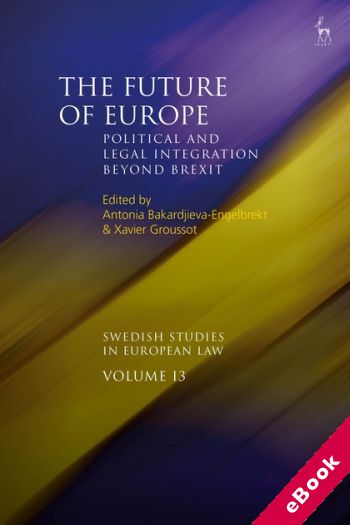
The device(s) you use to access the eBook content must be authorized with an Adobe ID before you download the product otherwise it will fail to register correctly.
For further information see https://www.wildy.com/ebook-formats
Once the order is confirmed an automated e-mail will be sent to you to allow you to download the eBook.
All eBooks are supplied firm sale and cannot be returned. If you believe there is a fault with your eBook then contact us on ebooks@wildy.com and we will help in resolving the issue. This does not affect your statutory rights.
Europe is at a crossroads. Slowly recovering from a series of financial and economic crises, with trust fundamentally shaken by processes of disaggregation and increasingly nationalist politics, it is searching for new visions that are at once inspiring and workable. In its White Paper of 1 March 2017, the Commission proposed five non-exclusive options for the Future of Europe. As put by the Commission, the five scenarios are illustrative in nature to provoke thinking. They are not detailed blueprints or policy prescriptions. Likewise, they deliberately make no mention of legal or institutional processes – the form will follow the function. This book takes the current state of the Union seriously. However, it aims not only to debate the political vision of Europe, but also to discuss the issue of legal integration beyond Brexit. Apart from addressing the institutional challenges for the EU, the contributions in the volume focus intendedly on two key areas: rule of law and security. Rule of law and security are not only paradigmatic for the future of Europe but are also closely connected to a particular vision of Europe based on ‘integration through law’; a vision that has been strongly contested in recent years. The overarching question is: what is the place of legal integration in the future of Europe?
The volume builds on a conference organised by the Swedish Network for European Legal Studies in November 2017 and includes chapters by leading scholars in the field from the Nordic countries and wider Europe.